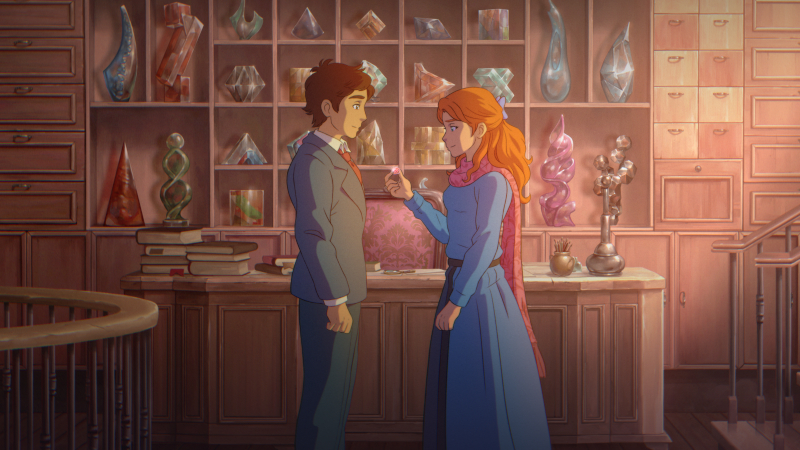Director – Usman Riaz – 2024 – Pakistan, Spain – Cert. 12a – 98m
*****
The son of a pacifist glassblower learning his father’s trade falls for the violin-playing daughter of an army colonel in wartime – complex, animated, anti-war drama is out in UK cinemas on Friday, September 19th
If you knew nothing about this animated film beforehand, you’d assume it to be Japanese. Love it or hate it, most animation made in Japan falls within very distinctive, stylistic, visual parameters. According to the press blurb, director Riaz is an admirer of Studio Ghibli directors Miyazaki and Takahata as well as more recent directors Mamoru Hosoda and Satoshi Kon. Visually, the film feels more like a Miyazaki than anything else, and of comparable quality too. Yet it’s also highly original, and Riaz, here directing his first feature after a number of shorts, clearly has his own voice.
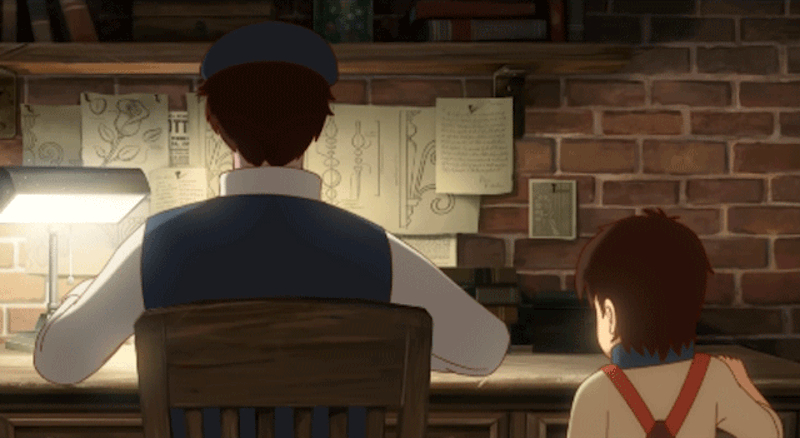
It opens with a frame story about youthful glassblower Vincent Oliver (voice: Sacha Dhawan) who, with the help of his father, is preparing for the opening of his debut glassware exhibition. He rereads a letter from a girl which his father (voice: Art Malik) had told him years ago to destroy in their workshop’s furnace.
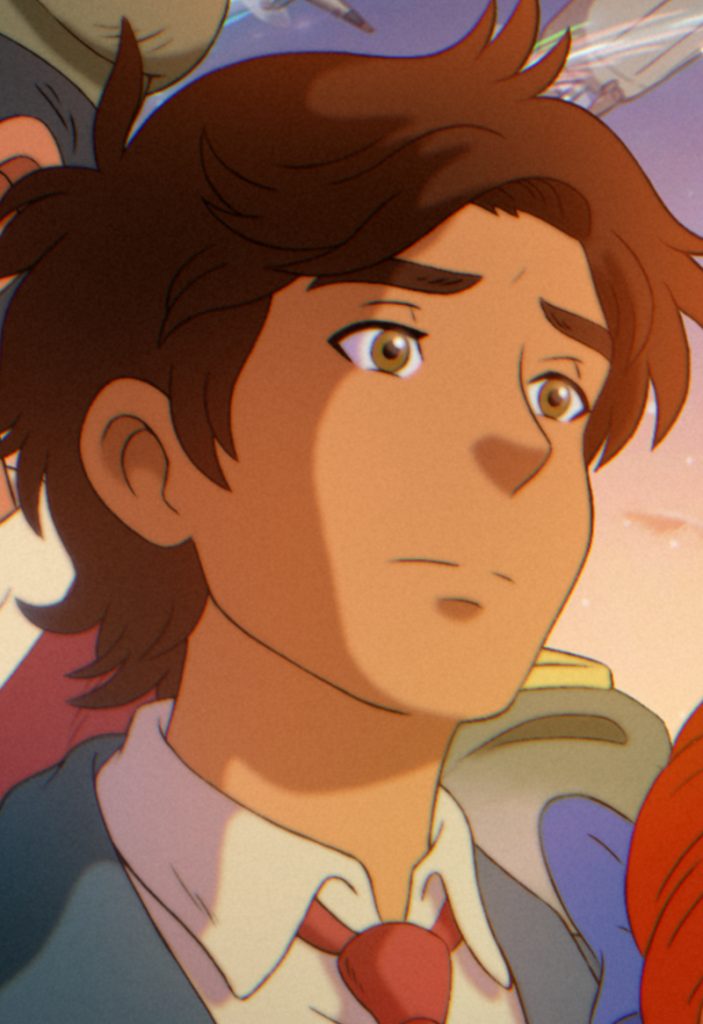
His late mother was a talented glass artist whose mental designs his father helped her to realise after she astonished his family, glassblowers for generations who ran their own workshop in Waterfront Town, by being the first woman Vincent’s grandfather had met who did glassblowing. His father is a consummate craftsman who now runs the workshop, and is home-schooling Vincent in both the sciences and the techniques of the trade, and the boy shows great promise.
One day, Alizz (voice: Anjli Mohindra) chances on the glassware shop and is taken with it. A talented young girl recently enrolled at the local school where she is being tutored in violin, she is fascinated and persuades Vincent to show her the workshop. Vincent, who feels something of an outsider in the town on account of not attending the school, is very taken with her.
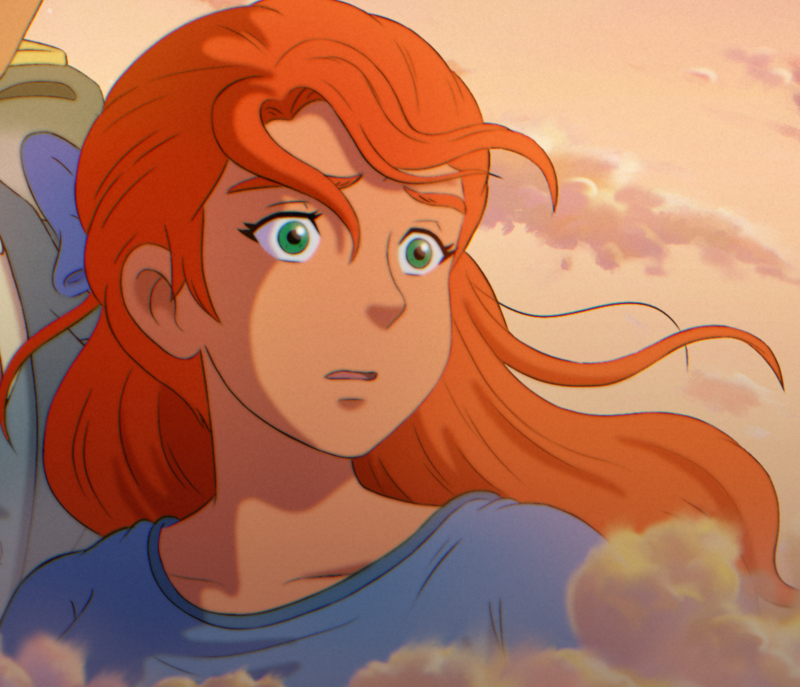
However, his father forbids the visit because she is the daughter of the army colonel (voice: Tony Jayawardena) recently billeted in the town. War is looming, the disputed territory being the area known as The Great Ravine, which both their country and the enemy believe to be rightfully theirs. His father considers such things foolish, and is a died-in-the-wool pacifist, a stance which puts him at odds with the more nationalistic outlook of most of his fellow townsfolk, whose sons such as Alizz’ classmate Malik (voice: Sham Ali), who rather likes the girl, are enthusiastically signing up for the army.
As friendship and romance begins to blossom between Vincent and Alizz, and the army with the new recruits under the Colonel leaving the town as they are called up to fight, Vincent’s father is unwillingly pressed into manufacturing glass components for top secret amphibious aircraft to help the war effort. The only alternative the Colonel offers Vincent’s father is conscription to the front line, which would leave no-one to run the workshop and shop, as Vincent is not yet experienced enough.
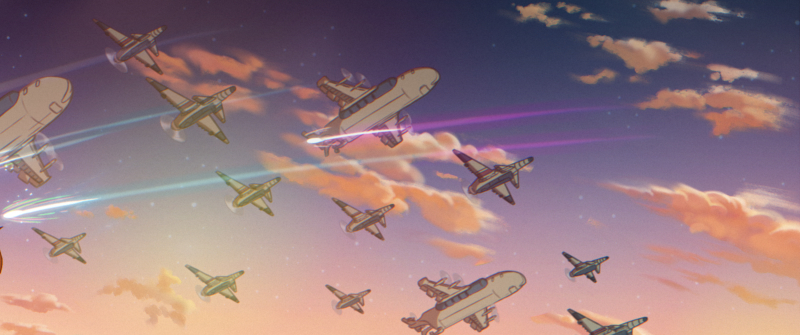
In negotiating the unwanted deal, Vincent’s father manages to secure supplies of all the specialist materials needed for the workshop, a problem previously as military demands took first priority in wartime. He also sets things up so that Vincent isn’t working on the war contract, but rather learning his craft and experimenting making his own pieces too.
Vincent and Alizz get into something of a row when he suggests that as a musician who only interprets the compositions of others, she’s not really a true artist. This ultimately leads her to write and perform a piece of her own, inviting Vincent to her recital at the school, however Vincent has his invitation stolen by an anti-pacifist bully on the way there, and ends up having to scale the building and watch through a cupola window, with Alizz believing he hasn’t turned up…
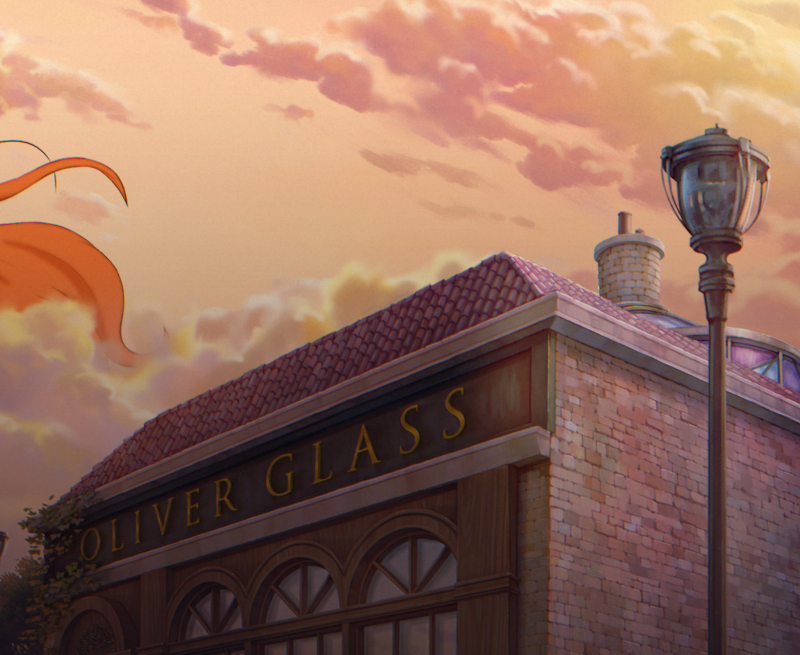
Unlike Miyazaki, who in his later film The Wind Rises (2013) embraced aircraft design while turning a blind eye towards its use in weapons of war, Riaz takes a defiant, anti-war stance in all this. In addition to the sympathetic handing of the pacifist father and his son, he also shows us young men such as Malik enthusiastically signing up and later experiencing the horror of war in a sequence when the Colonel’s unit is all but decimated and the Colonel himself wounded, and the young man helps him travel cross-country to safety. And within the Colonel’s family, his wife Nadia is fiercely pro-military and anti-pacifist while their daughter, encouraged by her father to pursue music, is forced to work out exactly where she stands on such issues, a process made much harder by her involvement with the son of a pacifist.
On the home front, outside of Vincent’s family, the mood shifts from the initial rush of young men to join up to the disquiet once they leave to fight and the terror of firebombing when air raids take place. One particularly effective sequence has Alizz and Vincent accidentally witness coffins coming back to the school premises from the front line before a bombing raid takes place.
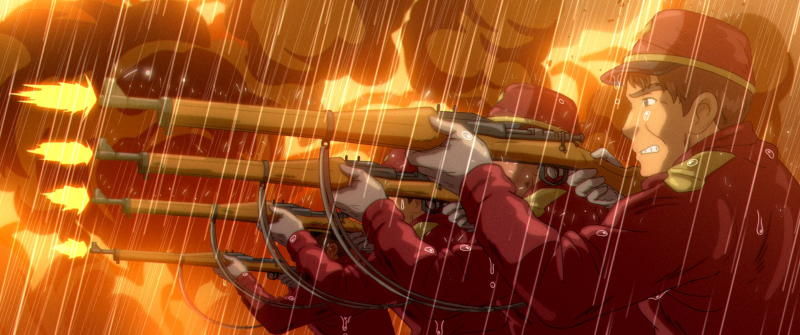
Like a Miyazaki film, the visual design of the characters is quietly effective and there’s a real love for creating a beautifully realised coastal town as a backdrop (think Kiki’s Delivery Service, 1989; or Ponyo, 2008). The firebombing recalls, in particular, the fire demon images in Nausicaä of the Valley of the Wind (1984). There’s even a sequence where Vincent and Alizz lie on the grass looking up at the sky, a key motif found in Laputa: Castle in the Sky (1986). The whole film has Miyazaki’s aesthetics written all over it.
That’s not to diminish Riaz’s remarkable achievement of creating an animation facility from scratch in Pakistan, which before this had no animation infrastructure to speak of, in order to make the film. (He got there partly by using the facility to make a number of acclaimed animated shorts first.) Such one-offs can impress for the mere fact that they get made, even if the resultant films aren’t terribly good (see, for instance, Nepalese live action entry Gurkha Warrior, Milan Chams, 2022), but in the case of The Glassblower, the film is beautifully realised, utterly engrossing and very much its own film.
In a time of rising, right-wing sentiment around the globe, it also delivers some timely observations and warnings. It deserves to be widely seen, and hopefully will pick up distribution around the globe.
This review is of the English language dubbed version of the film, which is excellent, and appears to be the version being released in UK cinemas.
The Glassworker is out in UK cinemas on Friday, September 19th.
Trailer:
